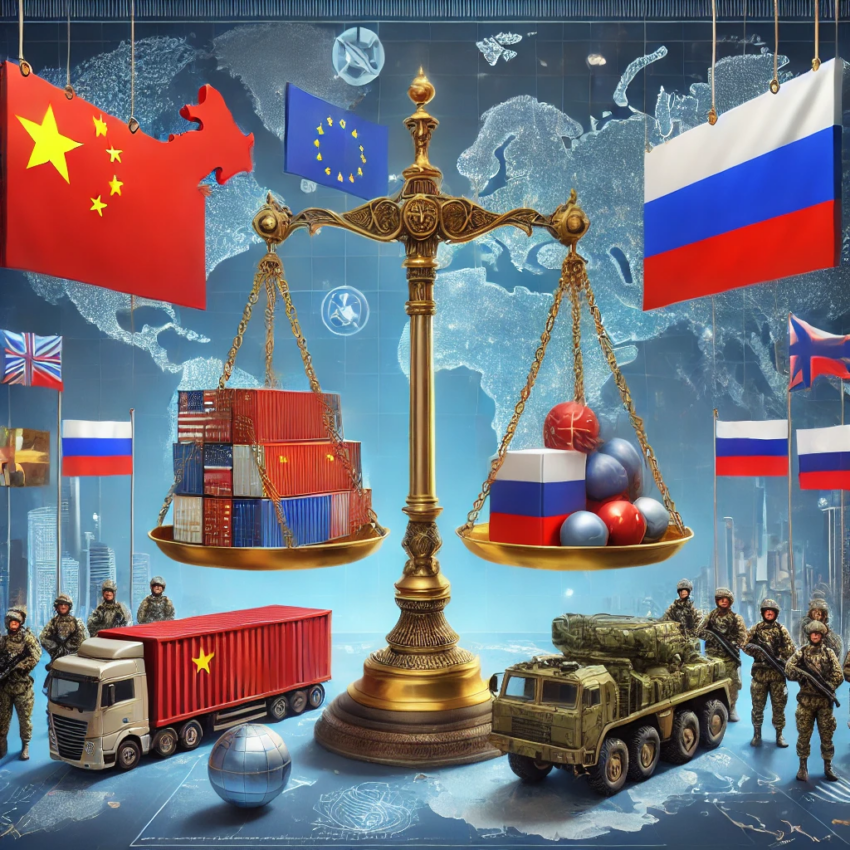The Allegations and Sanctions
In recent months, the European Union (EU) and the United States (US) have imposed sanctions on several Chinese companies, accusing them of aiding Russia in circumventing international sanctions. These allegations center on the supply of advanced technology and military goods to Russia, particularly components used in drones and other military equipment (euronews) (The Moscow Times).
This move is significant as it marks the first time mainland Chinese companies have been specifically targeted by EU sanctions related to the ongoing conflict in Ukraine. The EU’s 13th package of sanctions, adopted by all 27 member countries, underscores the increasing concern about China’s role in supporting Russia’s war efforts (POLITICO).
The Geopolitical Context
The imposition of sanctions highlights a broader geopolitical concern: the potential for authoritarian countries, including China, to align themselves against democratic nations. These alliances are often based on perceived common threats to their regimes from democratic ideals and international pressures.
However, China faces a complex balancing act. Its largest market is the democratic West, with economies that are not only wealthy but also home to a vast consumer base. While authoritarian countries might offer some market opportunities, they cannot match the economic potential of Western democracies. Consequently, China cannot afford to sever ties with the West without risking significant economic repercussions.
The West’s Dependency on China
On the other side, Western countries are heavily dependent on China for a wide range of products. From electronics to consumer goods, China plays a crucial role in global supply chains. This interdependency means that a complete breakdown in relations would be detrimental to both sides. The West relies on Chinese manufacturing, while China relies on access to Western markets.
The Path Forward
Given the mutual dependencies, it is crucial for both sides to navigate this tension carefully. While the EU and US are rightfully concerned about any support China may provide to Russia, they must also consider the broader implications of their actions. Sanctions are a necessary tool to address immediate concerns, but long-term strategies must focus on dialogue and cooperation.
For China, continuing to engage with the West is economically beneficial. The country’s large economy and significant population make it a critical player on the global stage. However, aligning too closely with Russia could jeopardize its relationships with key trading partners.
For the West, maintaining a relationship with China is equally important. Alienating China could disrupt global supply chains and economic stability. Instead, efforts should be made to encourage China to adhere to international norms and practices, fostering a cooperative rather than adversarial relationship.
Conclusion
The situation underscores the delicate balance of modern geopolitics. While addressing the immediate issues of Chinese support to Russia through sanctions, it is equally important to maintain a long-term vision that promotes stability and cooperation. The future of global relations depends on recognizing mutual dependencies and striving for a world where economic and diplomatic relationships can coexist with efforts to uphold international laws and democratic values.
Andrea Bodei
EUCIF
The European Cyber Intelligence Foundation is a European non-profit think tank specializing in intelligence and cybersecurity, offering consultancy services to government entities

